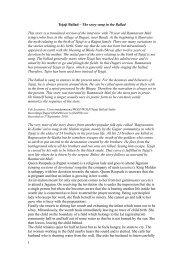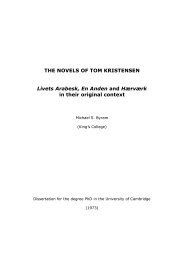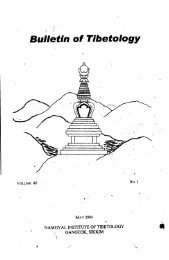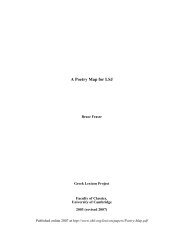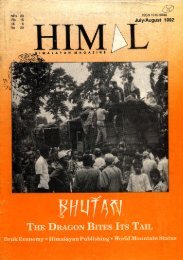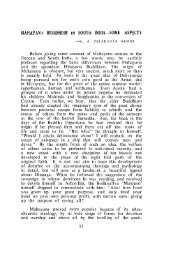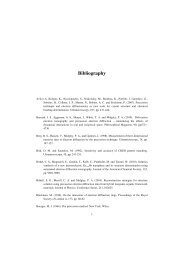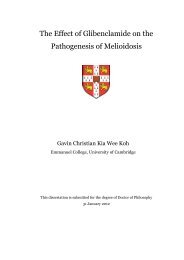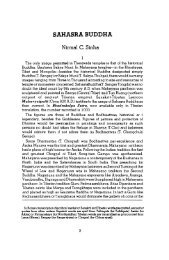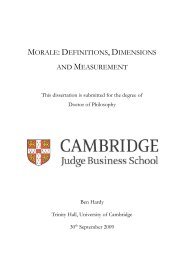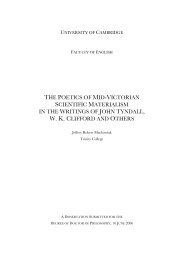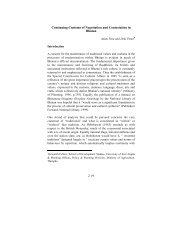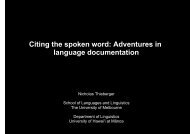The Crusades, the Genoese and the Latin East - DSpace at ...
The Crusades, the Genoese and the Latin East - DSpace at ...
The Crusades, the Genoese and the Latin East - DSpace at ...
Create successful ePaper yourself
Turn your PDF publications into a flip-book with our unique Google optimized e-Paper software.
paying an annual fee to Genoa <strong>and</strong> recognising <strong>the</strong> city's sovereignty in Gibelet. Unfortun<strong>at</strong>ely,<br />
members of <strong>the</strong> family are not mentioned again in <strong>the</strong> documents of <strong>the</strong> Order of St John until<br />
1174. In <strong>the</strong> records from 1174, however, Hugh II <strong>and</strong> his bro<strong>the</strong>r Raimundo were referred to as<br />
Hugonis de Biblio et Raimundifr<strong>at</strong>ris eius. 455<br />
From 1177 onwards, Hugh II frequently appeared<br />
in <strong>the</strong> documents with <strong>the</strong> title dominus Biblii ash<br />
This change in <strong>the</strong> town's name <strong>and</strong> consequently <strong>the</strong> surname of its inhabitants must not<br />
be dismissed as an insignificant semantic change. Indeed, alter<strong>at</strong>ion of surnames in <strong>the</strong> crusader<br />
st<strong>at</strong>es had played an important part in <strong>the</strong> establishment process of <strong>the</strong> <strong>L<strong>at</strong>in</strong> society. Robert<br />
Lopez demonstr<strong>at</strong>ed<br />
th<strong>at</strong> <strong>the</strong> process of change in surnames was very common in Genoa as well,<br />
it was `far from complete even <strong>at</strong> <strong>the</strong> end of <strong>the</strong> thirteenth century. '457 Moreover, in an era in<br />
which surnames were often derived from place names, <strong>the</strong> change was almost<br />
inevitable. Second<br />
<strong>and</strong> third gener<strong>at</strong>ions of settlers in <strong>the</strong> <strong>L<strong>at</strong>in</strong> <strong>East</strong> had, <strong>the</strong>refore, often adopted new names. Peter<br />
Edbury described <strong>the</strong> case of Hugh of Ibelin, who was <strong>the</strong> first person in his family to adopt <strong>the</strong><br />
famous surname of Ibelin: in 1152, Hugh forced his stepfa<strong>the</strong>r Manasses into exile, `<strong>the</strong>reafter <strong>the</strong><br />
fortunes of <strong>the</strong> Ibelins blossomed. Hugh evidently held Ibelin itself, <strong>and</strong> indeed he was <strong>the</strong> first<br />
member of <strong>the</strong> family known to have taken his name from it. '458 Ano<strong>the</strong>r change occurred in <strong>the</strong><br />
name of Hugh's bro<strong>the</strong>r. `Evidently as a result of a shift in <strong>the</strong> fashions of pronunci<strong>at</strong>ion during<br />
<strong>the</strong> third quarter of <strong>the</strong> twelfth century, Barisan <strong>the</strong> younger came to be known more commonly<br />
as Balian. i459 <strong>The</strong> comparison between <strong>the</strong> de Biblio <strong>and</strong> <strong>the</strong> Ibelin families deserves more<br />
<strong>at</strong>tention because similar process occurred in both cases <strong>at</strong> approxim<strong>at</strong>ely <strong>the</strong> same period. <strong>The</strong><br />
origin of <strong>the</strong> Ibelin family is disputed. Peter Edbury referred to <strong>the</strong> `obscure origins' of <strong>the</strong> Ibelins<br />
<strong>and</strong> suggested th<strong>at</strong> <strong>the</strong>y origin<strong>at</strong>ed in <strong>the</strong> coast of Tuscany or Italian Liguria 460<br />
Jon<strong>at</strong>han Riley-<br />
Smith, however, recently argued against this <strong>the</strong>ory. <strong>The</strong> Ibelins, according to Riley-Smith,<br />
descended from French aristocracy <strong>and</strong> were rel<strong>at</strong>ed to <strong>the</strong> viscount of Chartres; Barisan himself a<br />
descendant of <strong>the</strong> noble families of Le Puiset <strong>and</strong> Montlhery46'<br />
ass Delaville, vol. 1., no. 467, p. 320<br />
ash Delaville, vol. 1, nos. 458,495,520,589,596,676 etc.<br />
457 Robert Lopez, `Concerning Surnames <strong>and</strong> Places of Origin', Medievalia et humanistica 8 (1954), p. 9.<br />
On <strong>the</strong> change of personal names in <strong>the</strong> crusader st<strong>at</strong>es see, Iris Shagrir, Personal Names in <strong>the</strong> <strong>L<strong>at</strong>in</strong><br />
Kingdom of Jerusalem: A New Source for <strong>the</strong> Study of <strong>the</strong> Frankish Society, unpublished PhD <strong>the</strong>sis (<strong>The</strong><br />
Hebrew University of Jerusalem, 2002). On <strong>the</strong> change of surnames in this period as well see Monique<br />
Bourin, `Les formes anthroponymiques et leur evolution d'apr8s les donnees du cartulaire du chapitre<br />
ca<strong>the</strong>dral d'Agde (Xe si8cle-1250)', Genese medievale de l'anthroponymie moderne. Etudes<br />
d'anthroponymie medidvale, le et lie Rencontres, Azay-le-Ferron (Tours, 1990), pp. 179-205.<br />
458 Peter E. Edbury, John of Ibelin <strong>and</strong> <strong>the</strong> Kingdom ofJerusalem (Woodbridge, 1997), p. 6.<br />
459Ibid,<br />
p. 5.<br />
460 Ibid, p. 4, note 7.<br />
461 Jon<strong>at</strong>han Riley-Smith, `King Fulk of Jerusalem <strong>and</strong> `<strong>the</strong> Sultan of Babylon', in Benjamin Z. Kedar,<br />
Jon<strong>at</strong>han Riley-Smith <strong>and</strong> Rudolf Hiest<strong>and</strong> (eds.<br />
), Mon joie, (Aldershot, 1997) pp. 60-61.<br />
129



